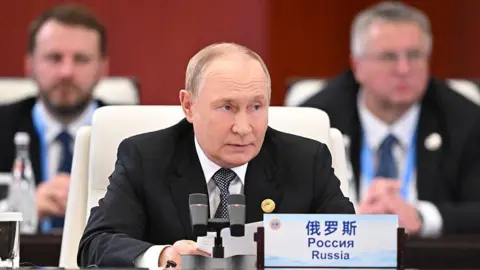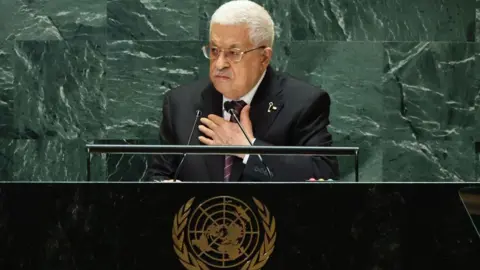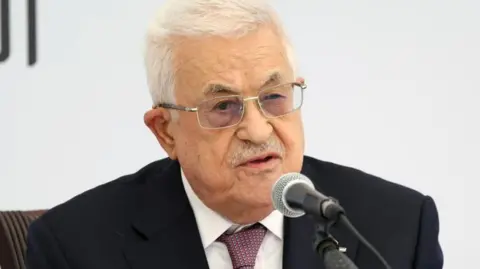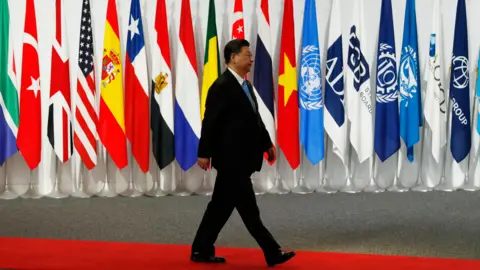In a notable push for international recognition of Palestinian statehood, French President Emmanuel Macron has announced that France plans to formally acknowledge Palestine at the upcoming United Nations General Assembly in September. This move is placing considerable pressure on UK Labour leader Sir Keir Starmer to make a similar declaration, with implications for Britain's longstanding foreign policy.
France's intention has been anticipated for some time, though it was previously delayed due to geopolitical tensions, specifically the recent bombing of Iran's nuclear facilities by Israel and the United States. The aim of France's announcement is to foster a diplomatic environment that might spur other nations to follow its lead, thereby strengthening the legitimacy of the Palestinian cause on the international stage.
During Macron's recent visit to the UK Parliament, he emphasized the significance of a united front with the UK in recognizing Palestine, stating that “working together to recognize the state of Palestine is the only path to peace.” A key French diplomat indicated that mutual action between the UK and France could have a profound impact, as both are permanent members of the UN Security Council. They argue that a bilateral approach could catalyze broader commitment from other nations, thereby reshaping the dialogue surrounding the Israeli-Palestinian conflict.
However, the UK government, historically cautious in recognizing Palestinian statehood, appears reluctant to embrace this path. Concerns linger regarding the implications of such a move on the UK’s relations with allies, such as the US and Israel, who view formal recognition of Palestine as potentially rewarding perceived acts of terrorism. The British government has consistently maintained that such recognition must not be a mere political gesture but instead part of a pragmatic approach towards achieving a sustainable, two-state solution.
Recent remarks from Prime Minister Rishi Sunak reiterate the UK’s stance that statehood for Palestinians is contingent upon achieving a ceasefire and ensuring security for both Israelis and Palestinians. Foreign Secretary David Lammy also acknowledged that recognition should align with efforts to broker a peace agreement that promotes stability and mutual respect between the two parties.
Yet, dissatisfaction is growing within Parliament. MPs from various parties are increasingly vocal about their support for recognition. Health Secretary Wes Streeting notably diverged from the official line by stating urgency in recognizing Palestine, suggesting imminent risks if the status quo persists.
As the UK government grapples with these dynamics, the stakes are high. Inaction could lead to legislative pushback within Parliament, with potential rebellions on the horizon. Conversely, a forced response to France's lead could result in criticism of a lack of strategic foresight, further complicating the UK government's diplomatic approach.
While over 140 nations have recognized Palestinian statehood, with recent acknowledgments by Ireland, Spain, and others, the tangible effects of political declarations remain uncertain amidst the ongoing humanitarian crisis in Gaza. What unfolds next regarding recognition from the UK could set a significant precedent in international relations and the conflict at large.
France's intention has been anticipated for some time, though it was previously delayed due to geopolitical tensions, specifically the recent bombing of Iran's nuclear facilities by Israel and the United States. The aim of France's announcement is to foster a diplomatic environment that might spur other nations to follow its lead, thereby strengthening the legitimacy of the Palestinian cause on the international stage.
During Macron's recent visit to the UK Parliament, he emphasized the significance of a united front with the UK in recognizing Palestine, stating that “working together to recognize the state of Palestine is the only path to peace.” A key French diplomat indicated that mutual action between the UK and France could have a profound impact, as both are permanent members of the UN Security Council. They argue that a bilateral approach could catalyze broader commitment from other nations, thereby reshaping the dialogue surrounding the Israeli-Palestinian conflict.
However, the UK government, historically cautious in recognizing Palestinian statehood, appears reluctant to embrace this path. Concerns linger regarding the implications of such a move on the UK’s relations with allies, such as the US and Israel, who view formal recognition of Palestine as potentially rewarding perceived acts of terrorism. The British government has consistently maintained that such recognition must not be a mere political gesture but instead part of a pragmatic approach towards achieving a sustainable, two-state solution.
Recent remarks from Prime Minister Rishi Sunak reiterate the UK’s stance that statehood for Palestinians is contingent upon achieving a ceasefire and ensuring security for both Israelis and Palestinians. Foreign Secretary David Lammy also acknowledged that recognition should align with efforts to broker a peace agreement that promotes stability and mutual respect between the two parties.
Yet, dissatisfaction is growing within Parliament. MPs from various parties are increasingly vocal about their support for recognition. Health Secretary Wes Streeting notably diverged from the official line by stating urgency in recognizing Palestine, suggesting imminent risks if the status quo persists.
As the UK government grapples with these dynamics, the stakes are high. Inaction could lead to legislative pushback within Parliament, with potential rebellions on the horizon. Conversely, a forced response to France's lead could result in criticism of a lack of strategic foresight, further complicating the UK government's diplomatic approach.
While over 140 nations have recognized Palestinian statehood, with recent acknowledgments by Ireland, Spain, and others, the tangible effects of political declarations remain uncertain amidst the ongoing humanitarian crisis in Gaza. What unfolds next regarding recognition from the UK could set a significant precedent in international relations and the conflict at large.





















